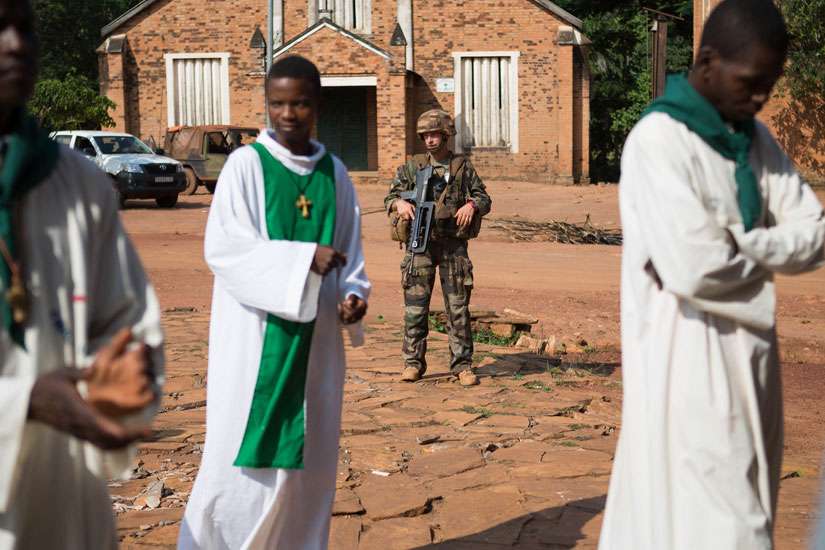Archbishop Dieudonne Nzapalainga, president of the Central African Republic bishops' conference, said he would gather Catholics in parishes to pray for the success of a national agreement to end the violence.
The archbishop said that, despite the violence, he was confident a Nov. 29-30 visit by Pope Francis would occur as planned.
A tentative calm returned to the capital, Bangui, after five days of clashes between Muslim and Christian groups left more than 27,000 residents displaced, according to UN sources. The violence erupted Sept. 26 after a young Muslim was killed in a Christian neighbourhood of Bangui, provoking gun battles.
On Oct. 1, the archbishop told Catholic News Service he had not yet been able to visit Catholic parishes caught up in the violence because of barricades erected by rival groups and a curfew by international peacekeeping troops. However, he added that he had visited local hospitals to "comfort the injured and pray with the bereaved" and would tour all affected communities with other members of the country's Interfaith Peace Platform.
"There's been too much death and suffering for us to surrender to some new wave of hatred and revenge. So I'll continue to spread a common message of peace with my Muslim and Protestant colleagues," he said.
"This is not a confessional crisis — I myself gave shelter to six Muslims who feared for their lives and to a group of stranded imams from the provinces," said Nzapalainga. "Our Catholic parishes are also helping children abandoned by their parents. Meanwhile, we've set up our platform for peace and will continue to operate it."
In March 2013 a rebel movement, Seleka, led by Arab-speaking Islamists, suspended the constitution. French and African peacekeepers were deployed in January 2014, after which Seleka was driven out of the capital.
The National Reconciliation Forum, convened by the country's transitional parliament in May, brought armed factions from Seleka and its Christian-dominated rival, Anti-Balaka, into a program to work toward an Oct. 4 constitutional referendum and Oct. 18 elections. However, UN sources said the national vote would have to be postponed because of the violence.


